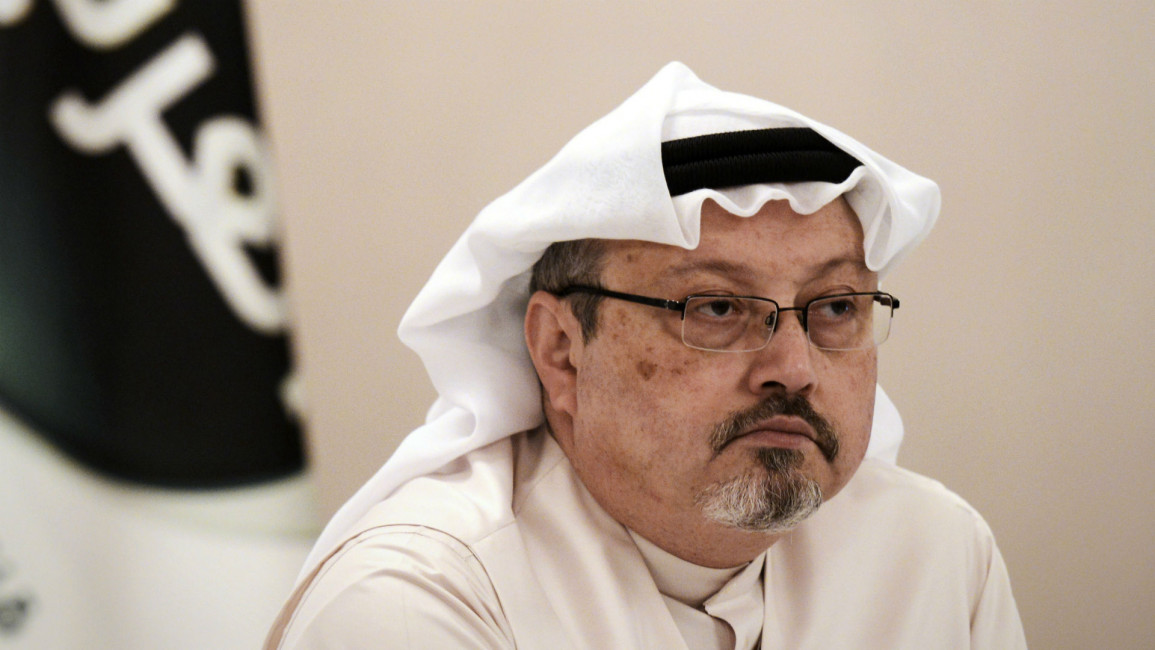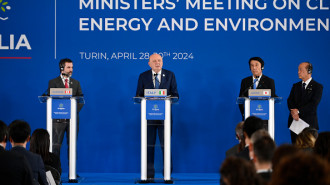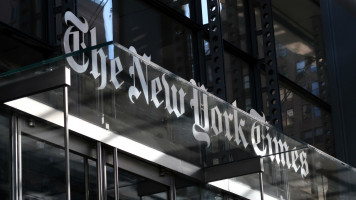Jamal Khashoggi: journalist and critic of 'extremist' Saudi Arabia
Jamal Khashoggi, a prominent Saudi journalist who has gone missing after entering his country's consulate in Istanbul, has been an outspoken critic of the ultra-conservative kingdom's government.
The Washington Post contributor has called for public debate and defended both freedom of expression and Islamist groups.
He went into self-imposed exile in the United States in 2017 after falling from grace with Mohammed bin Salman, Saudi Arabia's powerful crown prince.
He described a new Saudi era of "fear, intimidation, arrests and public shaming" in an article published in the Post that year.
He had previously served as an advisor to the Saudi government.
Khashoggi, who turns 60 on October 13, is a vociferous critic of Prince Mohammed's policies in both the Arab and Western press, with editorials in the Washington Post and The Guardian.
In a March 6 Guardian editorial co-authored with Robert Lacey, Khashoggi wrote: "For his domestic reform programme, the crown prince deserves praise. But at the same time, the brash and abrasive young innovator has not encouraged or permitted any popular debate" on the changes.
"He appears to be moving the country from old-time religious extremism to his own 'You-must-accept-my-reform' extremism, without any consultation - accompanied by arrests and the disappearance of his critics."
Khashoggi fled the country in September 2017, months after Prince Mohammed was appointed heir to the throne and amid a campaign that saw dozens of dissidents arrested, including intellectuals and Islamic preachers.
Khashoggi said he had been banned from writing in the pan-Arab daily Al-Hayat, owned by Saudi prince Khaled bin Sultan al-Saud, over his defence of the Muslim Brotherhood which Riyadh has blacklisted as a terrorist organisation.
The writer said Saudi authorities banned him from using his verified Twitter account after he said the country should be "rightfully nervous” about a Trump presidency” - which has expressed support for Crown Prince Mohammed.
Khashoggi has also criticised Saudi Arabia's role in Yemen, where Riyadh leads a military coalition fighting alongside the government in its war with the Houthi rebels.
The writer also opposes a Saudi-led boycott of Qatar, a tiny Gulf emirate that has found itself isolated over its allegedly close ties to extremist groups and Iran - a charge Qatar vehemently denies.
Khashoggi was born in the western Saudi city of Medina, revered in Islam as the burial place of the Prophet Mohammed.
He has done business with billionaire Saudi Prince Al-Waleed bin Talal.
After a youth spent studying Islamic ideology, Khashoggi later embraced more liberal ideas.
He began his career as a journalist with Saudi dailies in the 1980s, covering the Afghanistan conflict for the Saudi press.
Authorities came to see Khashoggi as too progressive and he was forced to resign as editor-in-chief of the Saudi daily al-Watan in 2003.
Khashoggi has retained ambiguous ties to Saudi authorities, having held advisory positions in Riyadh and Washington - including to Prince Turki Al Faisal, who ran Saudi Arabia's intelligence agency for more than 20 years.
'Vanished'
On Wednesday, Turkish presidential spokesman Ibrahim Kalin said Khashoggi was still being held at the kingdom's consulate in Istanbul after news of his disappearance surfaced on social media.
"According to information we have, this individual who is a Saudi national is still at the consulate as of now," Kalin told reporters during a televised news conference. He vanished while visiting the consulate to complete some paperwork.
Two people close to Khashoggi, one of whom is his Turkish fiance, raised concerns about his whereabouts, saying he failed to emerge from the consulate.
The woman, who asked not to be named, said on Tuesday she had waited outside the consulate from 1pm local time (11am BST) and called the police when he had not reappeared.
"I don't know what's happening. I don't know if he's inside or if they took him somewhere else," she said by telephone from outside the compound.
Concerns were raised further after Saudi Arabia's official SPA news agency reported on Tuesday that an unnamed Saudi national was arrested and extradited to the kingdom by its Interpol agency.
Turkish and Saudi authorities, including the Istanbul consulate and the Saudi embassy in Washington, did not immediately respond to requests for comment.
Agencies contributed to this report.
Follow us on Twitter: @The_NewArab


